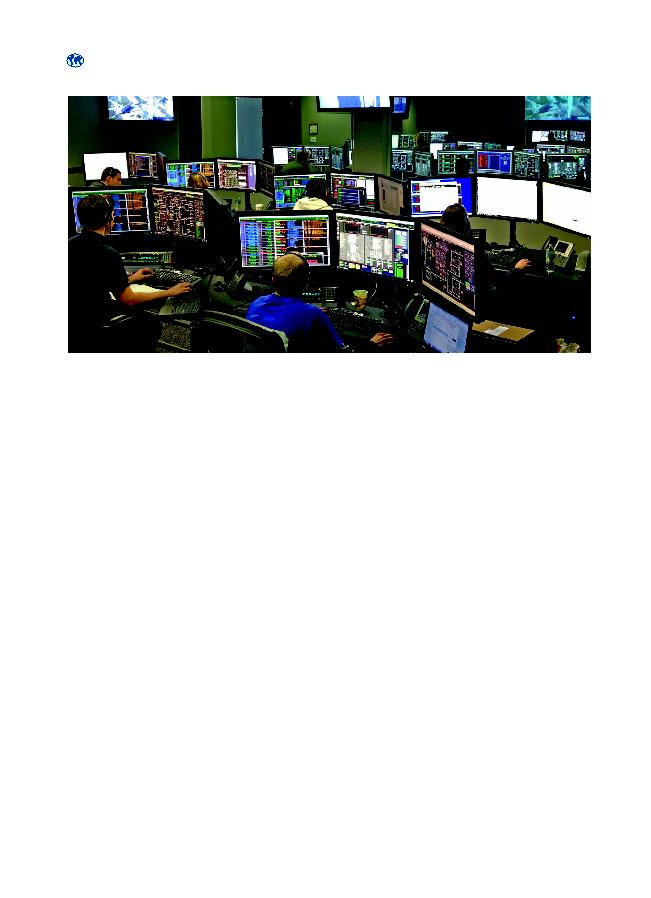
8 · d e t e k t o r i n t e r n a t i o n a l
Northbrook, Il (USA)
Security Technology
Market
According to a research report on the incident
and emergency management market with a global
forecast to 2027 from Marketsandmarkets, this
sector is predicted to grow from an estimated
$121.4 billion in 2022 to $163.6 billion by 2027, at a
compound annual growth rate of 6.2%.
An increase in global natural
disasters are expected to boost the
market. However, according to
the findings, disparities in costs of
incident and emergency manage-
ment systems may hinder the
market growth.
Emergency/mass notification
solutions enable organisations
to quickly inform the masses in
a particular area, building, or
commercial installation about the
occurrence of an emergency and
the most likely action that should
be taken. The mass notification
system usually sends alerts through
cell phone notifications, apps,
emails, and texts to notify the
masses individually and reduce the
panic and chaos among them. The
system can further help propagate
messages, advising rescue and relief
agencies and law enforcement
agencies about the due course of
engagement during an emergency.
There has been a heightened
demand for MNS to protect, alert,
and inform people in an emer-
gency. Mass notification systems
are designed to protect, alert, and
inform resources and people with
critical alerts (natural disasters,
HAZMAT) when it matters most.
Utilities vertical
is at most risk
A natural disaster is a global
phenomenon that severely impacts
people and resources. Such adverse
events have a major impact on
energy and utilities companies and
cause disruptions in their services,
creating significant ripple effects.
The energy and utilities vertical
comprises thermal, nuclear, solar,
wind, and hydropower plant
infrastructure, which are of acute
importance to the country. Hence,
this vertical plays a major role in
the growth of various developing
and developed countries.
Business alerts and notifications
related to power outages, work
shifts, and workflow management
are also provided by incident and
emergency management solutions,
specifically in the energy and
utilities sector, for streamlining
business operations and enabling
robust business continuity. These
solutions further help emergency
and security teams to execute
evacuation or emergency manage-
ment activities more efficiently.
Geographical outlook
The global incident and emergen-
cy management market is domi-
nated by North America, which
is considered the most advanced
region in terms of the adoption of
advanced incident and emergency
management technologies. In
recent years, this region has been
increasingly exposed to man-made
disasters, such as terrorist attacks,
strikes and protests, and chemical
attacks. These issues have pushed
the region to adopt incident and
emergency management solutions
and services. Post the terrorist
attacks, the DoD issued stringent
norms related to the installa-
tion and management of mass
notification systems in industrial
enterprises, public installations,
and defence installations.
Most of the US law enforce-
ment agencies, such as federal
agencies, the Marine Corps, the
US army, and defense, have
deployed mass notification systems
for instant intelligent alerts and
quick response management.
Governments are focusing on
incidents and emergency manage-
ment in their countries. For exam-
ple, the Government of Canada is
extending the use of its incident
management system Long-Term
Care Table mandate, which is also
expected to drive the growth of the
incident and emergency manage-
ment market.
Key players
The major vendors in the incident
and emergency management
market, named by the Market-
sandmarket include Honeywell,
Lockheed Martin, Motorola
Solutions, Siemens, NEC, IBM,
Hexagon, Collilns Aerospace, Esri,
LTI Mindtree, Johnson Controls,
Alert Technologies, Everbridge,
The Response Group, Haystax
Technology, Metricstream, Black-
berry, Eaton, Veoci, Noggin, 4C
Strategies, Resolver, Arcos, Juvare,
Logicgate and Onsolve.
Incident and emergency management
market to hit $163 billion by 2027
P
hot
o
: S
pac
e
X
-
I
m
ager
y / P
i
x
aba
y

